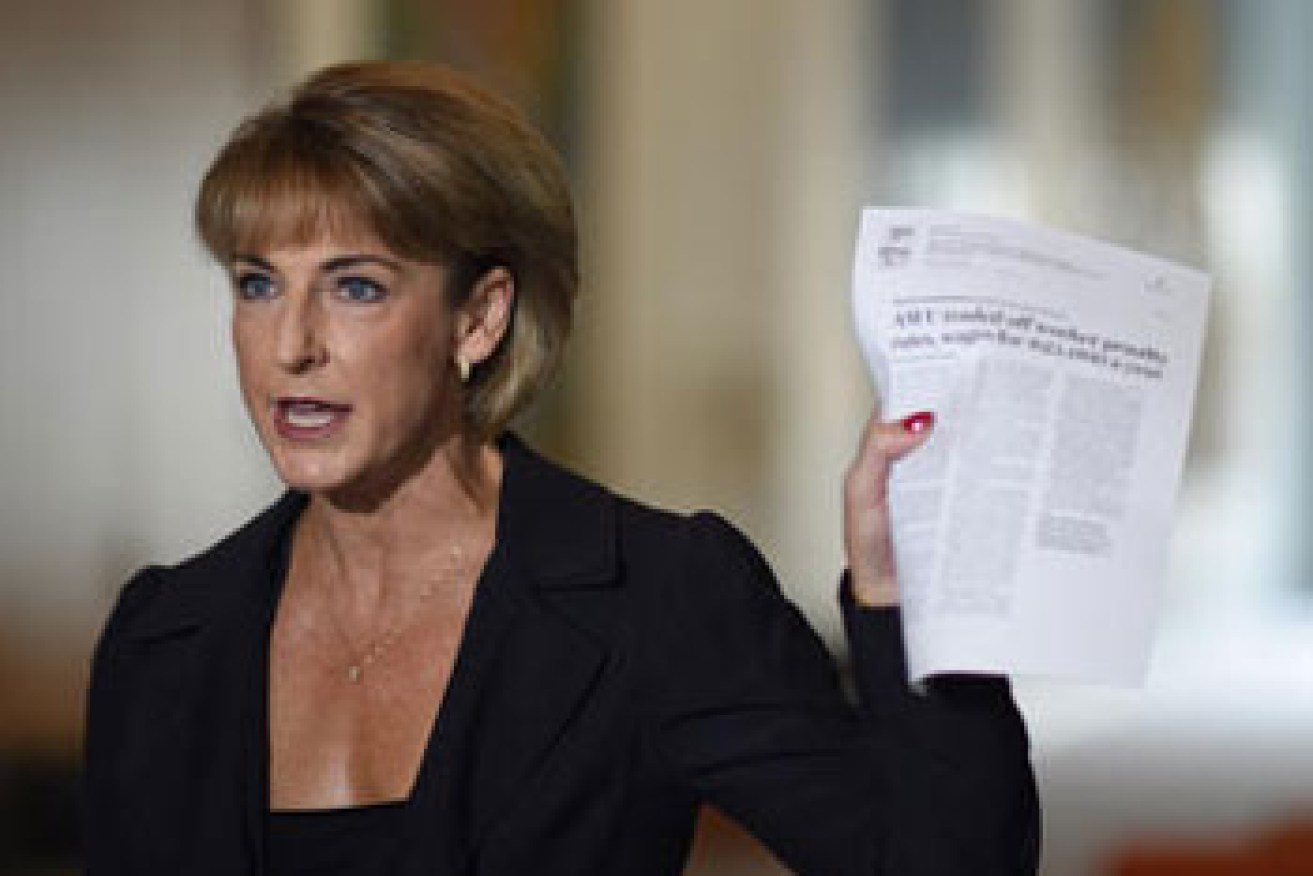Penalty rate changes like ‘economic apartheid’


AAP
Slashing the penalty rates for workers in the retail, hospitality and entertainment industries would be akin to “economic apartheid” and disproportionately affect women and youths, according to those in the sector.
An investigation of Australia’s workplace relations system recommended the creation of a “weekend rate”, while abolishing “inconsistent”, “anachronistic” and potentially frustrating dissimilarities in payments.
The proposed changes, put forward by the Productivity Commission, would see Sunday’s rates lowered from 175 per cent across the board, to 125 per cent for permanent workers, and 150 per cent for casuals.
• Sunday penalty rates in the firing line
• Penalty rate changes floated in report
• Penalty rates are critical for younger workers
But this would separate the workforce into essential and non-essential services, according to a leading expert in the field.
“It is splitting the workforce,” University of Sydney Employment Relations Professor Marian Baird told The New Daily.
“I am not convinced cutting penalty rates is going to increase productivity, it will increase profits to the owners of those services.
“It will have a disproportionate affect on youth and women, as they are the two groups that work, in a majority, in those sectors.”

Retail, hospitality and entertainment workers would be impacted by the proposed changes. Photo: Getty
She also questioned whether Sunday surcharges, a fee implemented in some restaurants to alleviate the cost of opening, would continue if the recommendation was implemented.
It is easy to see how lower wage costs could help employers, but what about the workers themselves?
The New Daily found out what they had to say.
Carol Gordon, 52, Launceston, receptionist
Motel receptionist and carer Carol Gordon juggles 15 hours of work each week with caring for a foster son – who requires regular hospital visits – helping out her mother, and trying to find time for herself.
The 52-year-old works two Sundays out of every three, with the penalty rates going a long way to covering expenses.
“I keep a budget within an inch of my life,” Ms Gordon said.
“If the Sunday penalty rates went back to what Saturday is, that would cost me about $1000 a year, and when you are on the knife edge anyway, that is a big difference.”

Marian Baird questioned whether Sunday surcharges would become a thing of the past if a ‘weekend rate’ was established. Photo: Getty
She said discretionary items would be the first to go, a huge loss to someone who spent much of her time looking after others.
“People in my income bracket they spend what they earn so if you cut down what they earn they spend less and that will have a knock-on effect for the economy,” Ms Gordon said.
She added the proposed changes would divide the workforce and likened them to “economic apartheid”.
Sara Bone, 31, Rainbow Beach, pub manager
Single mum Sara Bone would struggle to pay childcare if penalty rates were slashed.
“After certain hours, and especially on weekends and Sundays, [childcare] fees go through the roof,” Ms Bone said.
“If I didn’t get any penalty rates or loadings on top, I would be pretty out-of-pocket.
“I have to work regardless, I can’t say that I can’t work because I have to pay double rates [at childcare] so I would probably end up losing my job.”
Jack Todaro, 21, Melbourne, barista/waiter
For student Jack Todaro, the money he makes working from Friday to Sunday pays his way through university.
He doesn’t receive any welfare payments, so the penalty rates on weekends help to cover rent and bills.

Employment Minister Michaelia Cash said the Government’s proposals would be taken to the next election. Photo: AAP
“I have had to stop courses before, my current study load is less than full-time so I can take on extra shifts to pay my expenses,” he said.
“Quite potentially I would have to start looking for a second job [if penalty rates were cut].”
Erin Gibbons, 27, Melbourne, hospitality worker
“On a yearly basis it would make a huge difference, I would be thousands of dollars out-of-pocket,” waitress Erin Gibbons said.
“I think the biggest thing long-term would be whether or not I would have to think about getting a second job, or even a third job, or do I even consider staying in hospitality at all.”
Although only changes to Sunday rates were currently proposed, the 27-year-old said she was concerned the cuts would not stop there.
Employment Minister Michaelia Cash said the Government would assess the Commission’s recommendations and take any endorsed proposals to the next election.








